Sarah O'Brien's Blog
May 10, 2023
Why do we need books like mine?
When I was diagnosed back in 2014, which feels like an incredibly different time to be thinking about and discussing autism, there weren’t necessarily that many resources or places to go for information. Nothing could have made this information desert more evident than the leaflet that accompanied the diagnosis that landed through my letterbox six weeks after my three hour observation session with the clinicians deciding whether I really was autistic or not.
The leaflet in question wasn’t that offensive, looking back on it now, it definitely had language ‘of the time’, or even a time slightly earlier than my diagnosis, I’m not sure how many times it had been put through a photocopier before the version made its way to my hands. The main offence of the ‘help and support leaflet’ had to be that every service or support shared in the leaflet and the links at the end of my diagnosis were either no more or didn’t support my age group, gender or location. I’d gone from pages earlier getting the affirmation that I was autistic to suddenly finding out that I was now on my own.
Being on my own meant doing what I’ve realised I do best, research. Searching the internet for information about autism can be a bit of a Wild West and I wasn’t a traveler with he best resources to navigate it all. In truth I did find a lot of academic research but it wasn’t the most helpful as it wasn’t applied to autistic life circumstances. I found books and blogs written by non-autistic people about autism and the tragedy of our lives. Not the best start to an already fragile self esteem! These all felt like wrong turns that were intended to snare me in and make me feel as bad about being autistic as society had already told me to.
It was all a bit doom and gloom until I eventually stumbled upon autism being defined by autistic people. Suddenly the focus and language wasn’t one of despair and tragedy, it was one of collectively describing our experiences, sharing the highs and the lows, accessing language to describe what at that point had just felt like a scream inside of me. It was from then on that I pledged to only learn about autism from autistic peoples perspectives and writing. It was a turning point for me. I no longer felt like something was wrong with me, instead I was so alike to so many others, I was different from non-autistic, but not in a bad way.
That’s the whole point. What I needed, and what many of us need at that point of vulnerability is to be able to find out about autism and our autistic selves from those who just get it, who know what we’re going through. It’s so important for autistic people to be able to find out about autism and build a positive autistic identity from and with other autistic people.
Essentially, So, I’m Autistic is what I needed to get me through that time after diagnosis. I wrote for my 18 year old self the book that didn’t exist when I needed it so that those exploring an autism diagnosis don’t have to face the same hardships that I did. It’s so important to have access to ways of describing and understanding yourself that are built with both realism and positivity, informed by first hand experience.
Thankfully, 2023 is a very different space to exist in than 2014, or even the years I waited for my autism assessment. There’s vastly more information than there has ever been about autism, research is often done with us rather than about us, language is shifting, societal awareness is improving and an autism diagnosis is less frequently commiserated. So, I’m Autistic joins a bevvy of books written by autistic authors from all walks of life to make sure the upcoming generations of autistic people know that being different is not something to hide or be ashamed of.
So, I’m Autistic is available from anywhere you buy books, publishing on 21st June 2023.
January 25, 2023
So, I’m Autistic… Now what?
I first thought about writing "So, I'm Autistic" back in 2018, but it didn’t feel like the right time. I was getting into the swing of my first full-time job, I was getting to know myself after finishing up my Master's degree, and I couldn’t see myself as an author. I could see myself as a reader as my childhood had been filled with what I can only describe as reading books at a pace that can be described as devouring them.
With the gentle and not-so-gentle encouragement of friends and colleagues, I held onto the idea and nurtured it into something I could see myself doing. I took the plunge, drafted a proposal, began researching and tried to figure out what I’d want to say. I had been diagnosed as autistic in 2014 and to be completely honest I was still figuring out what autism meant for me and importantly what being autistic meant. Autism and defining autistic existence comes with a whole vocabulary and rich lexicon built over the decades by those speaking about us and us speaking up for ourselves.
The diagnostic process itself left me with a whole lot of questions
“So, I’m autistic… Now what?”
“What does autism even mean?”
“How can I describe it to others without saying something wrong?”
In those four intervening years between my diagnosis and the idea of potentially answering all the questions I had to fight to find answers. Many of those answers came from research initially and predominantly from professionals who spoke from an outside in perspective. Those initial years of finding out about myself were filled with a heavy chunk of stigma and ableism wherever I looked until I found information about autism from autistic people’s perspectives. I began to understand myself, I began to help others and built a community of autistic people around me, a community that challenged the often damaging and hurtful narratives that we had listened to previously.
That process shouldn’t have taken four or five years for me to really settle into my autistic identity but I was battling a narrative that wasn’t as firmly focused on being neurodiversity-affirming as we find ourselves currently.

So, I took some time, I figured out what my voice would be and why I’d write a book. Pretty quickly it became obvious, to me at least, that handing someone a leaflet (if they’re lucky) with some links to information wasn’t all that useful after a diagnosis.
Most of the time the information after a diagnosis is aimed at parents or professionals who support autistic people, even then a lot of the information, support and training can be hard to access, outdated or no longer available. Nothing sums up the almost universal difficulties of accessing information and support around autism quite like a literal error 404 messages.
So after some bumps in the road and some literal travel to see what other people have to say about autism and supporting autistic people after diagnosis, I got my book proposal ready. I knew what I missed out on after diagnosis, and I kept hearing the same questions about what others wanted to know after diagnosis which meant the chapter outlines practically wrote themselves. After tweaking what felt like the fastest piece of writing I’ve ever done (if you discount the three years of pondering) I reached out to Jessica Kingsley Publishers in 2021 with an idea and got to writing during the year that followed.
2022 saw me completing the book and handing over the completed manuscript to the production team for them to take over. One meticulous vision board from me and the work of a talented designer brought the gorgeous cover into reality. I knew I didn’t want to replicate the books that had crushed my self-esteem and identity after diagnosis, that didn’t feel like they represented the autistic people I’ve come to know or me. We stayed away from “autism blue”, puzzle pieces and anything that symbolised deficit, instead choosing a more abstract representation of what I termed “summer turning into autumn” synaesthesia because that’s my favourite time of year and the colours bring me joy.
So, I'm Autistic is the book I needed as a teen but couldn't find anywhere; the questions I had that were left unanswered as I worked my way through to adulthood.
"So, I'm Autistic: An Introduction to Autism for Young Adults and Late Teens" is now available for pre-order, and on 21st June 2023, I'm going to fulfil a childhood dream of being a published author.
August 5, 2022
The emotional labours of lived experience
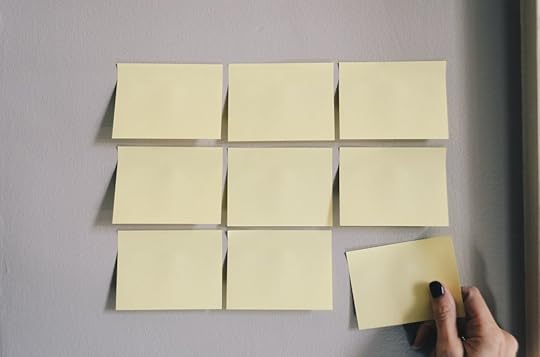
As someone who could have a fair amount of my life defined by the trauma I’ve experienced, if I wanted it to be defined that way, I'm not necessarily a fan of having to share that. I’ve become reticent towards revealing the things about myself that I don’t feel that others need to know, to offload the things that prove my worthiness to others by opening up vulnerabilities they shouldn’t have access to. Too often being involved in a piece of work as a public contributor or as a person with lived experience or whichever label fits best means opening up these parts of yourself to validate the space you take up. While others are allowed “a seat at the table” by virtue of their professional qualifications or roles the ‘qualifications’ I hold are generally centred around a laundry list of conditions, performed expertise and the emotional toll of bringing up what others find most relevant about my past today.
So I no longer share all of myself with anyone who feels entitled to ask, it's something I've become quite protective about. I’ve found ways to be protective of myself and I’ve sort of hidden these parts behind many layers of how I choose to interact with involvement and lived experience work. So much of my diagnoses and lived experience, whether deemed relevant or not, is wrapped up in things that are fairly traumatic. So, they're not the things that I happily describe to the stranger on any given weekday during yet another ‘co-production workshop’ (which would more accurately be titled a consultation/focus group than co-production in most cases) when they ask me why I'm in the room. They’re experiences that I drew up without having to label or specify to their most granular minutiae, I think sometimes it's one of those things where I could talk about the things that have gotten me where I am, but I don't necessarily dwell on them. The parts of ourselves that feel foundational don’t need to be dredged up, they can inform us without being called out explicitly.
These foundations, even if I try not to be cognisant of them in every thought form part of everything I do. I can do this without others having to know that I acknowledge them and everything that I do. If I gave every piece of what I thought, felt and experienced up I'm not sure what I would have left. That's one of the real issues that I've found with being a public contributor, we’re expected to mine ourselves for the work of others, to continue burrowing into the things that have been difficult to make ‘new’ things better. Being that person with lived experience, being someone who is involved in yet another project, there isn't always the emotional mopping up to manage and deal with what someone has experienced and what they're sharing at that moment. So instead, I don't give all the details that I used to give. Someone doesn't need to know my diagnosis. What they do need to know are my access needs and they need to know my opinions, my views, and the experience that I’m bringing, they need to know it on my terms. Not on terms that I've come to realise can be exploitative.
There's an emotional labour to digging into these traumatic things time and time again, uncovering them for a fresh audience who then take these parts of you away and hold that part of you with them wherever they go next, able to do with it what they see fit. Something that those who work professionally, who don't lean into their personal lives, don't seem to understand is that when the division between the personal and professional is nothing, not even a blurred line that can make it really difficult to put boundaries. Even when you put these boundaries up they’re generally not the kind that others necessarily respect, if you’re there on unequal terms, to be the '“voice of lived experience” then asserting what you will and will not share can be difficult to uphold. Being given entry to a space through your lived experience does not make your history an open book, in good environments, this is understood and respected, in bad environments, it can be the small cuts made to open you up without even realising. When I speak about the importance of inclusive facilitation and working with empathy it extends to these interactions and how power manifests itself in each interaction or phrase.
So the trauma then gets hidden, the experiences reworded until they’re sanitised and palatable, until they're easily digested for the situation that you're in. It’s not unauthentic to provide a bit of bravado or facade until you feel able to reveal the layered authenticity. If you give all of yourself all at once, there's no way to keep that going. It's unsustainable. It's something I found to be incredibly unsustainable when I've been working previously. I would give so much of myself, reveal the thing that then set ears burning. Then I realised I didn't have to. I didn't have to justify my existence. I didn't have to give the details that prove my point. I just had to say what I wanted to say and how I want to say it. I didn't have to pour open everything. Someone wasn't gonna see again, half an hour from now.
That's the thing. A lot of what we do is asking us to open up the traumatic, to lay ourselves bare, that is something we are able to do, it's just deciding what those terms are. I’m not quite there yet with figuring out my terms of engagement, I know I don’t have to label my specific diagnoses if I don’t want to, I don’t have to talk about the process to get here, I don’t have to be explicit in what I’ve experienced. I can talk with confidence knowing that my place is justified in the space by the space I talk up, not the space I try to fill in other’s expectations.
July 8, 2021
It’s #CoProWeek… again
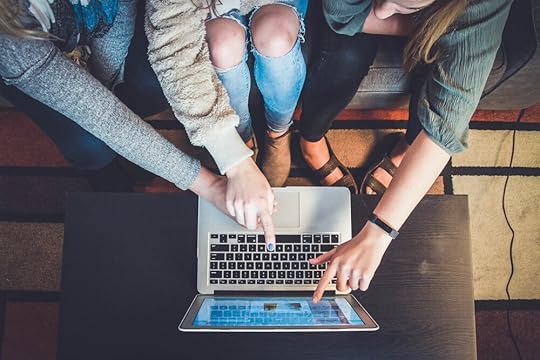
Are celebrations like National Co-production Week just artificial or are there other ways to increase awareness about co-production?
Image description: Three women sit on a sofa and jointly work on a laptop on a coffee table in front of them. Their hands point to different parts of the laptop and screen.
Once again it is National Co-production Week, a chance to celebrate and bring awareness to co-production as an ethos, co-produced projects and educate others on what co-production is. As someone with multiple conditions and identities that mean the year is scattered with awareness, celebration, pride and history months National Co-production Week is just another week in that schedule.
To me these weeks have often lacked a sense of authenticity, they aren’t there for those of us who live or do these things every other day, week or month of the year. We aren’t the target audience of these efforts, once that is understood it is easier to see these celebrations for what they are - marketing weeks. Assigning a specific time or setting a stage for a conversation to occur makes ideas easier to market to a wider audience, media is more likely to pay attention and the public are more able to give attention to set topics in a set time frame. However this way of celebration reduces often complex experiences to simplified and introductory work, every event and resource created is top-level rather than being afforded the depth needed to get into the nitty-gritty - of which co-production has a lot of.
Instead of a true celebration, we’re pushed to have the same debates and conversations over and over, ‘what is co-production’, ‘how much should public contributors be paid’, ‘how do we recognise the value of people’s contribution’. While these are worthwhile conversations to have they will simply continue to be conversations if there is no action behind them, there is far more worth in tackling an issue rather than agreeing that an issue exists. For those faced with the very real issues of fair and timely remuneration of public contributors or just how to co-produce with others, there is less value in engaging in a conversation that by this stage has existed for decades than there is in creating and implementing solutions.
What do I want to see instead?Instead of just coordinated events that focus on a week in July, we need to work together, those in positions of power (whether real or perceived) need to use their platform to elevate those who are typically disempowered and disserved by power structures. There needs to be year-round planning and potentially a culmination event in July, often it feels as if co-production week celebrations are last minute.
Events and activities need to be planned much further in advance so that public contributors are not tokenistic in their presence at an event that they haven’t had a say in designing. We can do this by working with people, organisations bringing in the expertise from communities to design and deliver the events that are of the most worth and usefulness.
Celebrate co-production achievements outside of National Co-production Week,. By hinging so much value on a week we pressure ourselves to fit into a system that may not be of most benefit.
Developing of resources. As much as co-production is a values-based approach rather than a manualised methodology it can be really intimidating to know where or how to start. This is something that would benefit long time co-producers and those interested in using co-production as a way of working with others.
July 6, 2021
On the value of rest
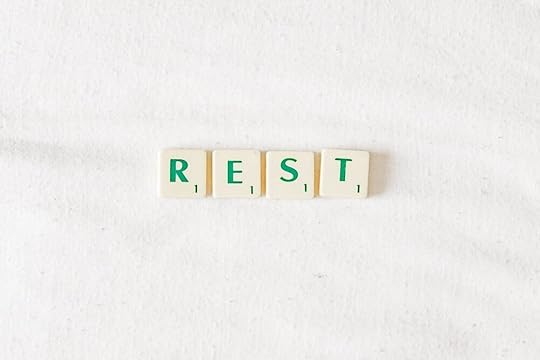
Rest can be hard to come by in a world where we are encouraged to constantly look to and move onto the next thing. Image description: Scrabble tiles that spell out “rest” on a white fabric background.
This blog started after a flare of my chronic health conditions that began growing from February and culminated in a period of burnout in marred most of May, it is something I am still recovering from.
Rest in a restless societyRecently I came to the abrupt realisation that I don’t often afford myself time to rest. Instead, I take every free moment to continually work towards the next iteration of myself, to secure the next safety net for when or if I take a pause. This is unsustainable for two reasons. The first being that there isn’t a chance to stop in this cycle as it self perpetuates, so the notion of finding a safe spot to pause, stop or rest is actually false. The second being that there is a focus on the next version of myself rather than the current reality of existence which doesn’t enable me to actually enjoy the self that I have, next does not necessarily mean better.
To me, rest means the moments that you’re not filling with everything expected of you (conversation, critical thought, housework or employment/ education), rest can be active or passive but ultimately it has to be chosen. It is a choice to go for a walk in green space, it might be physical exertion but it may also be afforded the time and physical space to mentally rest. It is a choice to not push your body and relax with an easy to read book or entertainment that doesn’t demand too much thought (not everything needs to be an intense whodunit).
Practically however these are small acts of rest in a society that demands full attention at all times, we are not often afforded time or space to rest. We are pushed to work, care for others, engage with others and use our time to the highest level of efficiency. In public spaces places to sit, rest or loiter are increasingly infrequent as architecture becomes increasingly hostile, in private spaces we are pushed to live in as little room as possible which never truly afford space to rest alone.
Asking to restChanging gears and stopping is not an act that fits within a capitalist society so it can be difficult to actually do. At the moment that you most need rest, the thing you need the least is to then coordinate all the spinning plates that will try to crash as you stop. It can be difficult to have the conversation about needing to pause or stop what you are doing in order to prevent a major crash (if you have the clairvoyant ability to see your crash before it happens) but it is an essential part of accessing the rest that is meaningful. We shouldn’t have to ask for permission to rest but unfortunately, it is something many of us have to do.
As well as seeking external validation to rest we also have to ask ourselves for a period of rest. What are we willing to sideline or turn down to afford ourselves the rest that we need? Rest is not free, it does come at costs but these costs might not be as steep as delaying vitally required rest. Why can we encourage others to take the rest that we struggle to allow ourselves? It is often easier to be kinder to another than it is to provide basic kindness to ourselves, instead of being your own harshest critic I’ve found it useful to mentally review my situation and evaluate it as if I were advising a friend. This creates a more compassionate form of radical honesty that can let us be kind about the rest that we need.
So what is the value of rest?Rest has the value in helping us reassess, in letting our body heal (whether it be from overworking, lack of sleep or anything else) and supporting us to be our best selves rather than waiting on our better selves. Devaluing rest has short term gain but often long term consequences, so instead of speeding past the warning signs it might be time to listen, reflect and act.
April 23, 2021
Researching a lifelong ambition
 When I grow up
When I grow upRecently I’ve been exploring what I want to do for the rest of my life and how I want to it, it’s a bit of a ‘what do you want to be when you grow up’ type of journey, only I’m much more grown-up than my five-year-old self who pondered about being a firefighter. In defence of my five-year-old self, she had just done a safety day at school, visited a fire station and hadn’t yet learnt about my adult fear of heights (learnt mid panic attack on an aerial assault course of all places). However she had the gist of things right, I want to be a person that helps others, something I’ve set about achieving so far in everything I do and to develop expertise in something that could be admittedly niche- although unfortunately not expertise in physical strength my knowledge lies much more in inclusion.
Different to the plans laid out by a child and with thanks to the self-discovery that comes with collecting disability diagnoses in young adulthood, I have been carving a career through my passions and interests which have strengthened themselves in every action and thought I’ve had in work and volunteering.
Tricky and fulfillingSo far I’ve learnt that combining lived experience with learnt experience can be just as tricky as it is fulfilling. The things that we want to do aren’t made to be easy but it wouldn’t hurt if they were a little bit easier.
The tricky part happens at the intersection of being a member of both camps but without the power needed to implement change. I’ve already come to understand that this often happens in bureaucratic systems that clasp onto power structures and struggle with power-sharing. Power-sharing is meant to be democratic or meritocratic where all citizen’s value is elevated but often we, unfortunately, continue on in the autocratic structures demanded of us by institutions. To share power you have to build the system, not try to exist within it, nothing can be changed enough without some level of dismantling the bureaucratic processes that institutions need. Finally, I’ve also learnt that the only way I want to work is in this patch of discomfort, pushing change forward with people rather than for people. Whenever I’m comfortable that’s when I know that there is not enough challenge occurring and it is likely that learnt experience is being used to prevail over lived experience. That comfort for me often comes at the price of discomfort for someone else through their exclusion from the discussion I am partaking in whether intentional or not.
After all that, the struggle and strife of trying to work in a way that centres on collective lived experience, shared power and decision making there is the often inevitable fulfilment, not just from finishing something but by finishing it with so many others involved. I often joke that I work in a way that utilises shared decision making so I don’t have to make decisions alone but it isn’t completely true, it’s more of an acknowledgement that I’m not always best placed, powered or knowledgeable about all the consequences of decisions. I recognise that decisions create ripples and while I am often like a small child fascinated by the ripples (very sensory seeking autistic there), those ripples do impact people, so people should be involved in deciding the direction of their ripples. So I’ve learnt how to position my lived experience alongside that of others while also making use of what I have learnt while studying and working, I’m still navigating how to wear these ‘multiple hats’ but it is something I’m becoming more confident with.
Nudged to applyI have been incredibly fortunate and privileged to be able to work in the ways that I want to and explore how to expand upon what I have learnt. Through this I’ve developed a breadth of inclusive practice, continuing this journey of education as I go. I’ve also been surrounded, much like penguins clingy to warmth, by a crowd of people, friends, acquaintances and colleagues who have continued to push me further, to reach for more and often just correct my spelling and grammar. In early January I started getting nudges to apply for something that could not have been a better fit for me, a project exploring inclusive involvement working with a Service User Led Organisation and researchers to see what the co-production and implementation of inclusion looks like in action. After much deliberation, chats and encouragement I applied, with that I put it to the back of my mind and didn’t think much of it, I had tried to pursue PhD before with what I felt was a strong application but it wasn’t something that found a place or funding.
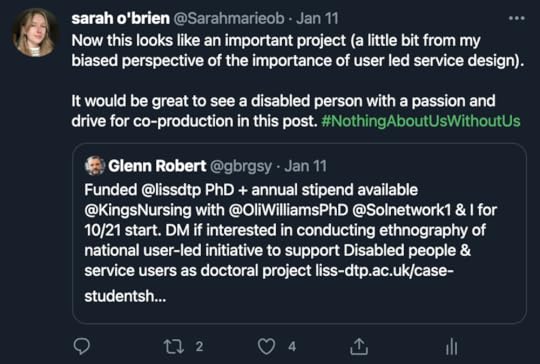
I’m not a big proponent of ‘manifesting your future’ but this is an example of doing exactly that. (tweet linked in image)
A lesson here is to not discount yourself from the experience you’ve had in the past but to believe in the growth you’ve had up until now (a bit cheesy I’m aware, but most hindsight is), as it turns out my application was strong and I was invited to interview. Taking a break from academia and pursuing my enjoyment of research through research networks, participation and involvement have provided incredibly beneficial here, bolstering my application academically and providing a firm basis in theory, the sector and the work of others splashing about in inclusive approaches to co-production and involvement. Ever the nervous person and ready to diminish my achievements, interviews are not always easy for me, this interview was no different, the more I thought, read about and pictured this doctoral project the more invested I became, so I spoke quickly blending my cynicism with a love of the work I’ve achieved so far. It turns out that worked, there was no denying the passion I have for this area, and even without the good news I ended up receiving I would have continued to work within inclusive involvement in some way or another without this opportunity.
AnnouncementThat was a lot of words to say that I’ve been offered the chance to undertake the exact kind of research and way of working I spend most workdays speaking about as a PhD at King’s College London. The official title is an MPhil/ PhD in Health Research Studies exploring the wordy topic of “Sustaining meaningful user involvement in research, local government planning and policy-making: an ethnography of a national user-led initiative to support Disabled people and service users.”. The short version of that is that from October I will be undertaking a PhD exploring inclusive involvement with disabled people on a project alongside Shaping Our Lives and researchers at Kings (Prof Glenn Robert and Dr Oli Williams).
This is all happening thanks to two things, the first is funding and the second is (finally) the inclusion of involvement practice at the doctoral level. I am thankful to be awarded an ESRC studentship as part of the LISS DTP (London Interdisciplinary Social Science Doctoral Training Partnership) Collaborative Studentships (CASE) which bring together academics and non-academic partners working together, in this case Kings and Shaping our Lives. That is something that really shone about this project to me, by it’s design it isn’t just mine, it doesn’t hide away in academia, it has to be shared with and worked on by other disabled people. The second point of involvement being embedded in a project at doctoral level is not something I could have envisaged before this project (but is a growing trend across health and life sciences), as I had always seen doctoral students struggling with payment of participants let alone any involvement due to involvement not being pre-emptively built into budgets. From the outside perspective, as an often involved person, it can seem like involvement, particularly when done badly is a segregated add-on project rather than a thread that holds the whole research together, that’s something I want to push to change.
From October 2021 I am heading back to university to dive into a doctoral project that will bring together so many disabled voices and opinions and I’m excited to see what we build together. Let’s see what we come up with over the next three years.
April 6, 2021
No awareness or acceptance thanks
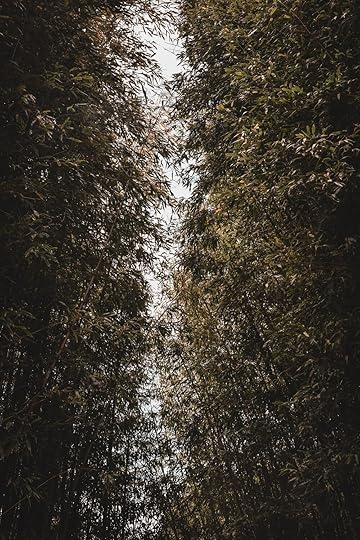
A ‘proverb’ about autistic people states that we often can’t see the wood/ forest for the trees because we’re detail-oriented and can’t see the big picture, so lets step back and see what the picture is offering us
April marks the celebrations of World Autism Awareness Day (2nd April), World Autism Awareness Week (first week of April) and World Autism Awareness Month (April itself). This is ahead of any pride activities which fall within the summer of pride events with Autistic Pride Day typically celebrated on the 18th of June. These sets of events are almost in opposition to each other, some led by organisations and the other led by autistic people.
History has not always shone too positive a light on the celebration of autistic life as we move in circular debates about awareness over acceptance and the staple tenet of the disability rights movement of ‘nothing about us without us’. With regards to awareness v acceptance (the rematch), as autistic people we know that others are aware of us, with autism being seen more and more in the media, both positively and negatively, we are getting to a saturation point of autism being a known concept. However what autistic people, like myself, generally want is to have our autistic differences accepted through support being put in place, understanding why we might do things differently and accepting all autistic people regardless of how we present. For these days being led by others than through the amplification of autistic perspectives, this is an issue often highlighted by messaging on WAAD, WAAW and WAAM not reflecting what autistic people’s priorities are or sharing information that could ultimately be harmful to us.
Awareness-raising is segregated from autistic people who often don’t directly benefit from these activities, many still face bullying in education settings for autistic traits before and after diagnosis, those who can’t work are still under-supported and those in work may not feel the benefit of being under a microscope. As autistic people we aren’t the intended audience, the audience is a bit more general and aims to educate while fundraising for charities that focus on autism. While fundraising isn’t inherently bad what needs to happen is the link between “we’re asking for donations” and “we will act to make this difference to the lives of autistic people”. We aren’t here to be pitied upon for the sake of fundraising but rather should be given the mic to share what issues we want and need funds to go towards.
The argument will likely continue to circle about the best way to support autistic people on these days, weeks and months and simply put the best way to support us is to listen to us, share our work and support us. In a time of unprecedented change and consequence, this has hit autistic people and those with a learning disability disproportionately hard. We don’t need fleeting awareness, we need embedding into an understanding of what society looks like. We don’t need narrow acceptance of autistic people who ‘don’t look autistic’ because they are ‘neurotypical passing’, we need acceptance and support of autistic people with any needs they have whether ‘obvious’ or not. We don’t need to assimilate into society but for society to change and become inclusive and accessible for everyone.
These days aren’t for us but with change, they could be. Designed by us, led by us and autism ultimately framed using our words. It won’t be instant but it needs to happen sooner rather than later.
Further reading:A great blog post from Georgia / @mindtheflap exploring autism awareness and acceptance.
A blog post from Teona / @tee_spoonie exploring growing up autistic but not yet diagnosed.
A piece from Josefina for Tiimo questioning why we still talk about autism awareness when they are many other issues autistic people face.
March 17, 2021
Autistic sensory experiences, in our own words
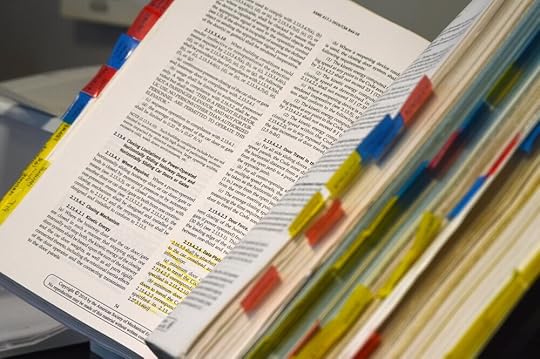
I’m a big fan of research with people rather than on, to or for people and this is about a project that is just that, with people
In 2018 I began working with researchers at the University of Reading, Dr Teresa Tavassoli and Keren MacLennan (PhD student) on a project that we devised together. As sensory researchers, Teresa and Keren were interested in exploring what is termed in research as ‘sensory reactivity’ which is in the diagnostic criteria for autism and means how much and how someone reacts to the sensory environment. For each autistic person, this is different but can happen across the many ‘domains’ or senses that we have. Someone might be hyper-reactive or very reactive to bright lights which can feel painful to look at and they might show that through facial expressions or movement, while someone else might be hypo-reactive or not very reactive so they don’t have as much of a visible or internal reaction. Another way an autistic person might react to the sensory world around them is to seek out sensory input like smooth textures, moving visual patterns or music that they enjoy. Together Keren, Teresa and I realised that autistic people have so many different experiences of what the sensory world is like and all the hidden connections between sensations but that these aren’t well captured or understood in research. Where autistic experiences of the sensory world are explored in research it is often from an outside-in perspective, the views of autistic people about their sensory experiences are underrepresented in research but overwhelming in autistic anecdotes.
To centre autistic voices in sensory research, we began to devise some research questions and ways of asking autistic people about their sensory experiences in a way that is accessible to them. We reached out to autistic people outside of our core team to check that what we were asking made sense and integrated their feedback into the research design. Once amended the online survey gave autistic people the opportunity to define their sensory experiences across both the senses and their ‘reactivity’ (hyper, hypo and seeking) by answering questions with open-ended questions and multiple-choice options.
Once data collection finished Keren took on most of the analysis and continued to check back with our core team to see if these codes and themes were right. Using content analysis (analysing the words and ideas that were present in people’s responses) and thematic analysis (generating themes from recurring topics in the responses) a greater understanding of the true diversity of sensory experiences was created. The analysis shaped and reshaped itself through the discussions of the core team until we had some consensus on the topics that were strongly coming through in the research. Once we had something 'presentable' we worked with a panel of autistic adults to check the themes and their obvious interconnectedness.
The interconnectedness between sensory input, emotions, energy level, ongoing task and how you manage everything you have to do alongside coping with sometimes overwhelming sensory input is an experience that many autistic people are familiar with. Understanding just how much the sensory world can impact how anxious you feel, how well you can communicate, how able to do a food shop or even just enter a space is an important piece of understanding to build up. Without this understanding, from the perspective of autistic people, many may not understand how all-consuming the sensory environment can be for some and for others it is a way of being able to interact that releases anxiety and tension. Interacting with the sensory world through sensory seeking behaviours is strongly associated with stimming (self-stimulatory behaviour that helps self-regulation) which is often a really positive (as long as no one is getting hurt) way of expression that can encompass happiness, anxiety, distress and so much more.
Having this full circle experience of creating research with autistic people and checking the analysis made sense to autistic people (there were some significant changes based on this interconnectedness point) means that this isn’t research just for or about people but with autistic people. The research could have been conducted without involving a single autistic person in the process, only as participants, but that would have (in my opinion anyway) weakened the research from the questions through to the analysis. With autistic people involved you get research that is much more impactful to the community it serves, we are able to represent our own experiences, in our own words, through our own perceptions to reflect more accurately what the sensory world is really like.
Finally, this all created an autistic informed model of sensory reactivity, with our inferences embedded. Even more importantly all of the interesting bits of what autistic people have to say about the sensory world can be accessed in the pre-print. Open access and available to the community it impacts: https://psyarxiv.com/3nk7a
March 15, 2021
What is grief
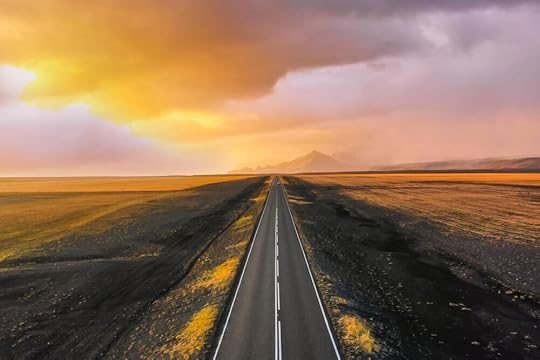
Life is often presented as a long and straight road from start to finish but we all know there are pitstops, twists and turns along the way
No year has felt quite as touched by grief as the past 12 months. There has been a national sense of mourning, a palpable sadness that has permeated so deeply in society that many have got to the point of turning it off completely. So much death and to a degree it is almost impossible to reconcile as an act that is often so private has turned so public, all while we have had to stay at home to prevent further death. Every death is a notable death, every death a life that ended and then rippled out to impact those left behind.
Often death is painted with the extremes of emotions felt by those who love and cherish the person they no longer get to spend their days with. There is as much love in silence as there is the keening wail of someone realising all the things the person they love will never get to see, the laughter, the judgement, the beauty of the world and their reaction to every little bump in life. While death and it’s aftermath are at their core very emotional, as we age death becomes more and more administrative. As a child we learn of the loss, the gulf that death presents but as adults we come to learn the admin you’re meant to do as you’re left barely able to cope.
It’s those moments of loss so deep in which we can barely breathe for the pain of it that our hearts demand support to form around us, to protect us from the breeze that could wind us completely. The pandemic has not been kind to that need to prop each other up, to split the administrative boulder into smaller rocks we can carry together. Families have been made to grieve and mourn in segregation for fear of a virus that has claimed far too many lives.
I’m reminded of a quote, much shared through social media, from WandaVision “But what is grief, if not love persevering?”, in a series that explores the entanglement of love, pain and grief we as the watch the titular character of Wanda explore her own grief, her own devastating loss. We all feel that pang when we loss someone we love and the severing of a relationship that wasn’t ready to end. Life is filled to the brim with what if’s, the questions we pose to ourselves in the dark and quiet moments of life as we re-evaluate all the decisions we’ve ever made, the guilt, shame and blame we assign to them and the selves we want to craft with future decisions. We can mourn the selves we’ve lost through the loss of others while also carrying on, carrying the memory of another with us and weaving their joy into our own. Grief is often a feeling of having to overcome something, to change it into something palatable to others, to fix the record player stuck on a loop but it is more like the ebb and flow of unruly waves. It doesn’t always have to be okay.
During the pandemic, I’ve lost two people, neither to coronavirus, the first my uncle to complications through cancer in June 2020 and the second a grandad-in-law (although I’m not married quite yet) who died in his sleep in March 2021. There is no easier path through death that is slow and death that is fast, like ripping off a plaster there will be pain whether quick or slow.
Things don’t have to be okay, an emptiness is okay, feeling like you’re moving on and leaving them behind is okay because it never is leaving them behind, they’re still there settled somewhere in your thoughts even if not there in person. Our memories of people are not just tied to their physical presence but every place, piece of music, favourite things and quirk they had, those are the things we get to hold onto, even in those quiet moments where we judge every choice we’ve ever made.
February 16, 2021
Intentional New Year
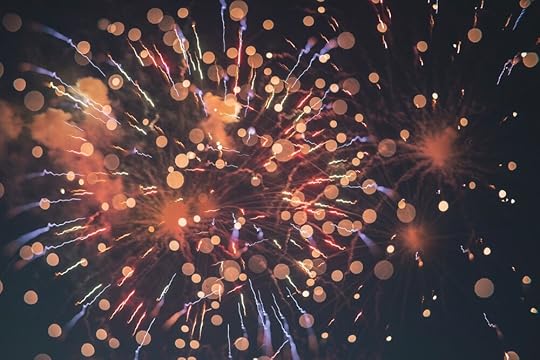
A new year doesn’t actually mean a new me but a chance to reflect on what the year ahead offers us as a space to achieve our goals.
I’ve never been a fan of the hype around New Year, or many celebrations really, I’m a person that likes to keep things small and underwhelming (rather than overwhelming) when it comes to big events. It’s not that I don’t enjoy celebrating, I just find that many of these events hinge on perfection and that is something rarely achieved unless you are able to accept that absolute perfection is improbable.
So for 2021 I'm focusing on the fact that while 2020 was far from perfect, in fact being a rather difficult year globally and personally for many of us, I’m not putting pressure on this year to be perfect. I made some really personal and professional progress during 2020 even when things got very hard, so I want to continue finding ways to make progress in 2021, that’s all I’m asking of the year. That’s my intention for the year, to move forward, it’s a bit of a cheat as the world continues to move forwards however we look at it.
Professionally I’ve taken a side step for this year, doing something that I’ve never done before. That being I’ve always made calculated if safe leaps to the next step, building on the skills I have already assured myself I have and not stretching myself beyond my limits too fast. That’s led to a patchwork career that to me has felt effortless because I’ve been the one to shape the challenge rather than the challenge shaping me. For now, I’m figuring out how to do completely new things and drawing on as much as what I know how to do as possible and it is kind of working, but there is still lots of learning ahead of me. Doing new things is scary for anyone and especially so for an autistic in a pandemic but I think I’m doing alright.
2021 might not be a spectacular year but it will be one filled with memories.
Sarah O'Brien's Blog
- Sarah O'Brien's profile
- 4 followers



